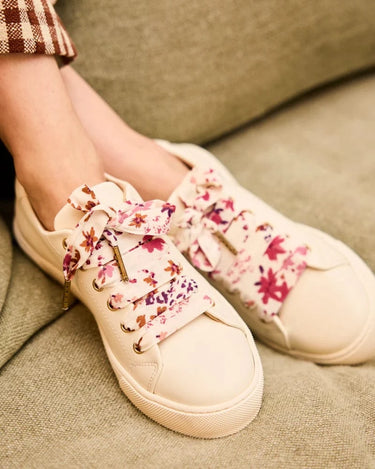Is Organic Cotton Really Better Than Conventional? (Spoiler: Yes)
Organic. The label seems to be everywhere: from apples and soy milk to skincare and perfume, the word seems to pop up every time you go shopping. Fashion is no exception – as materials and their provenance continue to be at the top of the agenda for many brands and consumers, organic fabrics are sought after. But does organic really make a difference, and is it worth taking the time to look for that organic label? When it comes to commonly used fibres such as cotton, the answer seems to be a resounding yes.
By Sascha Camilli: writer, speaker, activist, and vegan fashion expert.
The term “organic” refers to how something is grown and farmed. In the case of cotton, these processes are key to the overall sustainability of the fabric – as it's so widely used, the practices of its manufacture have a large impact.
At least 75% of the world's clothing features cotton in some form, making it the most widely used textile in fashion. Cotton is a natural material, and as such it is often believed to be inherently eco-friendly. The truth is that the production of the conventional, non-organic material, which many of our jeans, t-shirts, sweatshirts and tote bags are made from, presents issues such as water waste and pollution. So this is one case where organic actually does matter, and choosing it does in fact make a difference.
There is more than one reason for brands – and consumers – to switch to organic. From cutting back on toxic substances to saving water, organic cotton has a variety of advantages over its conventional counterpart.
Pesticides and chemical fertilisers. This is perhaps the most well-known and celebrated advantage of organic cotton – and it's a big one. Non-organic fabrics can make heavy use of these toxic substances – conventional cotton uses 6% of the world's pesticides and 16% of its insecticides, which poisons nearby communities and endangers the lives of farmers. Organic cotton farming relies on crop rotation to combat diseases, thus eliminating the need for harsh chemicals.
Water use. Is your t-shirt thirsty? Conventional cotton is a jaw-droppingly water-intensive crop. Just one kg of the material takes 10-20k litres of water to produce, due to soil health and surface groundwater resources being used to water the crops. Organic farming uses rainwater to irrigate the crops, and soil health is a key priority for farmers: healthy soil soaks up and retains water, making the crop less water-intensive overall.
GMO-free. We've heard this one – and it doesn't only apply to vegetables. Believe it or not, genetically modified organisms (GMOs) can show up in your wardrobe as well as on your dinner plate. But GMOs are off the table if a company wants to use the “organic” label. This means that farmers don't have to depend on GMO-producing companies to sell them seeds – instead they plant their own crops, using their land to also grow other crops alongside the cotton for additional streams of income, but also to maximise soil health. Avoiding GMOs gives power back to the farmers and allows them to provide for their families and communities.
Climate change. Fashion is notorious for its role in the climate crisis, and once again, conventional cotton is a potential villain. Here, the fertiliser issue comes up again: conventional cotton is often made using fossil-fuel fertilisers, contributing to global warming. Organic cotton, on the other hand, uses more natural methods, such as aforementioned crop rotation, to care for crops without fertiliser. This makes its global-warming footprint smaller, making it one of the ultimate planet-friendly fabrics.
Organic cotton won't save the world on its own – but choosing organic where you can is a positive step, especially if taken alongside a general reduction in consuming new products. Optimising farming practices and production processes to be as sustainable as possible is key for a more ethical fashion industry, which is something our planet desperately needs.
Check out brands that offer a versatile range of designs in organic cotton, such as KOMODO, Minuit Sur Terre, Bibico and Baukjen.
By Sascha Camilli
About Sascha
Sascha Camilli is a vegan fashion writer, speaker and activist. Her book Vegan Style is out now on Murdoch Books. For more about Sascha, you can read our interview with her or read her newsletter Kind of Wild. You can also follow her on Instagram, Twitter and LinkedIn.
Cover image by BIBICO
For more great content like this in your inbox, sign up to our newsletter, and save 10% off your next purchase, plus great savings throughout the year.
Related Articles

How To Have A Very Vegan Valentine's Day

Why Veganuary Is Still Relevant



















































































































